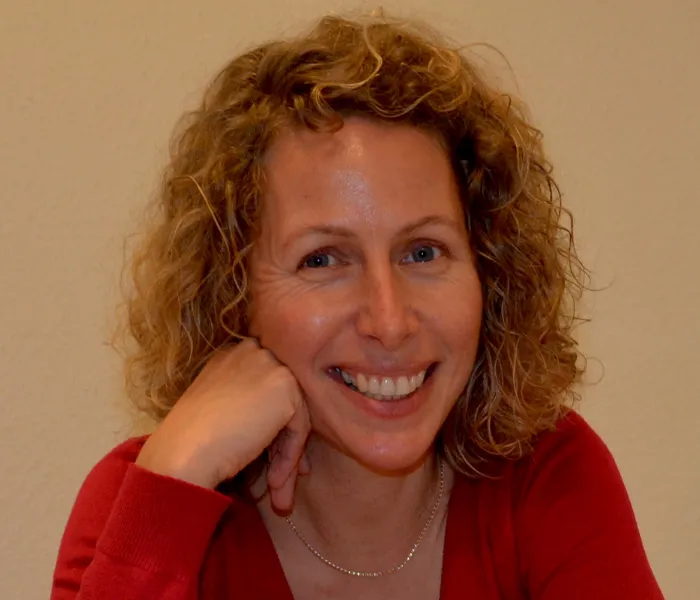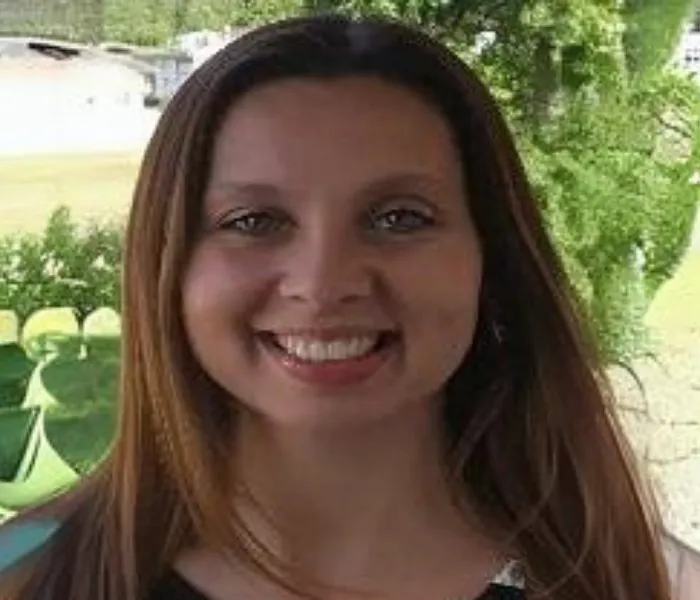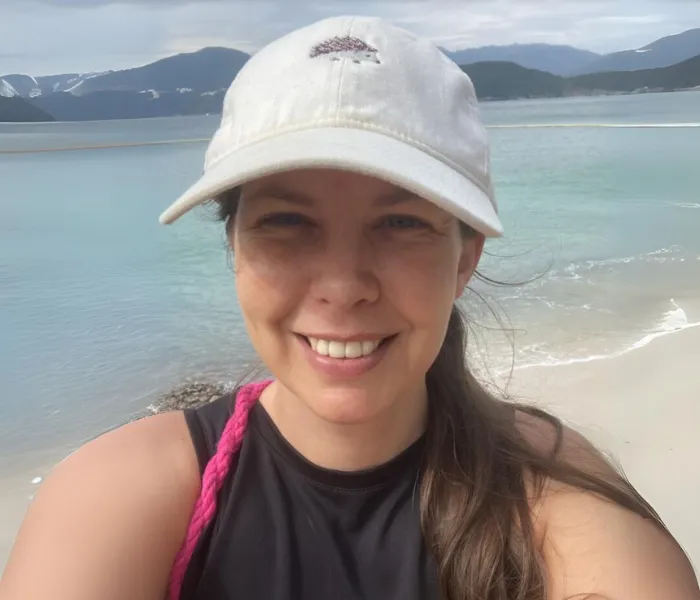Dorthe Kronborg Allen – SEND Programme
Dorthe Allen currently works as an SEN consultant in a variety of international schools all over the world. When asked what her special interest areas are in relation Dorthe says, “Autism and the neurological/cognitive function of those on the spectrum.”
Having studied both the Autism Spectrum Conditions and Speech, Language and Communication Needs modules with us at Real Training, we wanted to know how Dorthe got on and what her plans are for the future.
What made you choose the Real Training courses over other options?
I like that it is created for professionals working in the education system and that it is fully online. The range of modules on offer and the ability to study the specific areas that I am most interested in also influenced my decision to study with Real Training.
Having worked in education for the past 22 years I know which areas I need to expand on. This also meant I avoided having to “go through the motions” of completing units that I am already an expert in. During my search for a provider, I failed to find any others whose programmes were so well geared to people like me, whilst also offering a university-accredited MA course.
What was your experience of learning with Real Training?
My tutors have been great, always providing useful and thoughtful advice as well as consistent support. I am quite an independent learner myself and I found my tutors to be very understanding and respectful of this. I have enjoyed the EBSCO access, assignments and course resources that were available. They were always relevant and provided me with a good springboard for further research and questioning.
Even though the course is online there is flexibility to combine your own study style with the Campus Online requirements. I prefer to keep notes on paper and this was encouraged by my tutors, I was not asked to transfer these to electronic versions which I appreciated. As a busy SEN consultant with a workload that includes training teachers, writing articles and assisting schools to develop their SEN policies it is important for modules to compliment my work. This is exactly what I felt the Real Training courses did.
How have the courses helped make an impact at school?
Previously, I had been the sole inclusion teacher for an international school with an SEN register of over 80 students. My time on the course helped with provision planning, more effective IEP wording and developing better policy implementation processes. This was done by developing my understanding of the international school’s SEN arena with regard to the provision of both internal and external support.
I consistently used the skills I gained in provision mapping and understanding of screeners and assessments available for a range of SEN. Including effective use of teacher and parent surveys for flagging learners with ASD and formalising the diagnosis process. I was able to evaluate the school’s procedures using the course resources and knowing where to look for extra resources to address particular needs.
How have the courses helped develop you as an educational professional and what do you hope to achieve with the new knowledge/skills in the future?
I came to Real Training with a substantial knowledge of differentiation and SEN teaching strategies gained in my 22 years as a teacher of Drama, EAL and SEN. The courses have been most valuable in cementing my existing knowledge within the official setting of SEN provision. Essentially, I have gained a greater understanding of the following;
- Connections between school policy and provision
- Practice in identifying, adapting and using a variety of standards and frameworks for improved SEN provision
- SLCN and the rising prevalence of this particular needs
I have thoroughly enjoyed the reflection and critical analysis of my own practice, required by the course. I have also been able to clarify the professional direction I would like to take. As a result of my studies, I have seen instant growth in my consulting business due to having a faster and more efficient way of working, thanks to a broader range of resources that I developed during my studies. I plan to graduate at a Masters level and then start a PhD with a specialisation in ASD next year.
Kasia Suchocka – Speech, Language and Communication Needs
Kasia Suchocka works as a Primary EAL Teacher in a British International School in Poland. She has recently completed our Speech, Language and Communication Needs – Skills & Knowledge module. This module carries 30 credits on our MEd SEND programme and is a great starting block toward either a PGCert, PGDip or MEd in SEND.
Kasia has special interests in Dyslexia and Dyscalculia, hoping to learn more about them in the future. We had a chat with Kasia about how she found her time studying with us, you can see what she had to say below.
What made you choose Real Training over other options?
I heard about Real Training from my line manager who also started out by completing the SLCN module. She enjoyed it so much that she went on to complete the full MEd in SEND with Real Training.
What was your experience of learning with Real Training?
At first, I was a bit worried that as a postgraduate course, it would be too academic but it turned out to be the most practical training at level 7 that I have ever done. It was intellectually challenging but closely linked to practice, meaning I could apply my knowledge straight away. Communication with my tutor was very efficient, she would reply to my emails literally within hours! Campus Online was very interactive with lots of opportunities to share ideas and learn from one another. I truly recommend Real Training.
How has the course helped make an impact at school?
The course has helped me to raise teachers’ awareness of SLCN. Alongside this, my profiling template has been adopted by our inclusion department.
How has the course helped develop you as an educational professional and what do you hope to achieve with the new knowledge/skills in the future?
I deepened my knowledge about SLCN and better understood how to differentiate between EAL and SLCN. Thanks to the collaboration with SLT and other SEN staff, I learnt how to support children with additional learning needs. I hope to make a positive impact on SEN assessment practice in my current school.
Kirsty Ann Gibson – Speech, Language and Communication Needs
Kirsty Ann Gibson is currently working in an International School (IB) in Hong Kong. She is a primary classroom teacher for Year 3 pupils. Kirsty has a special interest in Speech, Language and Autism.
She studied Speech, Language and Communication Needs with us at Real Training, one of our MEd in SEND programme modules. You can read a little more on Kirsty’s time with us below.
What made you choose the Real Training course over other options?
I like the manner in which the course is run. As a teacher, my schedule is very busy and unpredictable. With Real Training, you can work at your own pace. I also like the diverse range of modules that they offer. Most online Masters courses I looked at only offered training in Autism and Dyslexia.
What was your experience of learning with Real Training?
I found the tutor support to be exceptional. Janet always provided timely, constructive feedback. I have only been working with Sue for a few months, but she has been great too. The only stressful part of the course was trying to do the observations during COVID-19. I think that perhaps we could have been given videos to watch and analyse instead of trying to do everything over Zoom.
How has the course helped make an impact at school?
After I completed the module in Speech, Language and Communication Needs, I met with a few colleagues to discuss my findings. Due to Covid-19, the groups were small, however, I did receive some positive feedback. From the teachers who attended, we were able to discuss and define the difference between EAL and SLCN. Often, many of our students are misdiagnosed. We also spoke about Wave 1 interventions, identifying what we were doing well and how we could improve. We also spoke about how we can train new teachers and what kind of support they might need in order to best support students with SLCN. During the presentation, teachers and learning enhancement staff discussed ways in which we can make our joint working environment better.
How has the course helped develop you as an educational professional and what do you hope to achieve with the new knowledge/skills in the future?
I feel more confident to identify and support students with SLCN and share my knowledge with other teachers. I hope to move into a learning enhancement teacher role when my master’s is complete.



